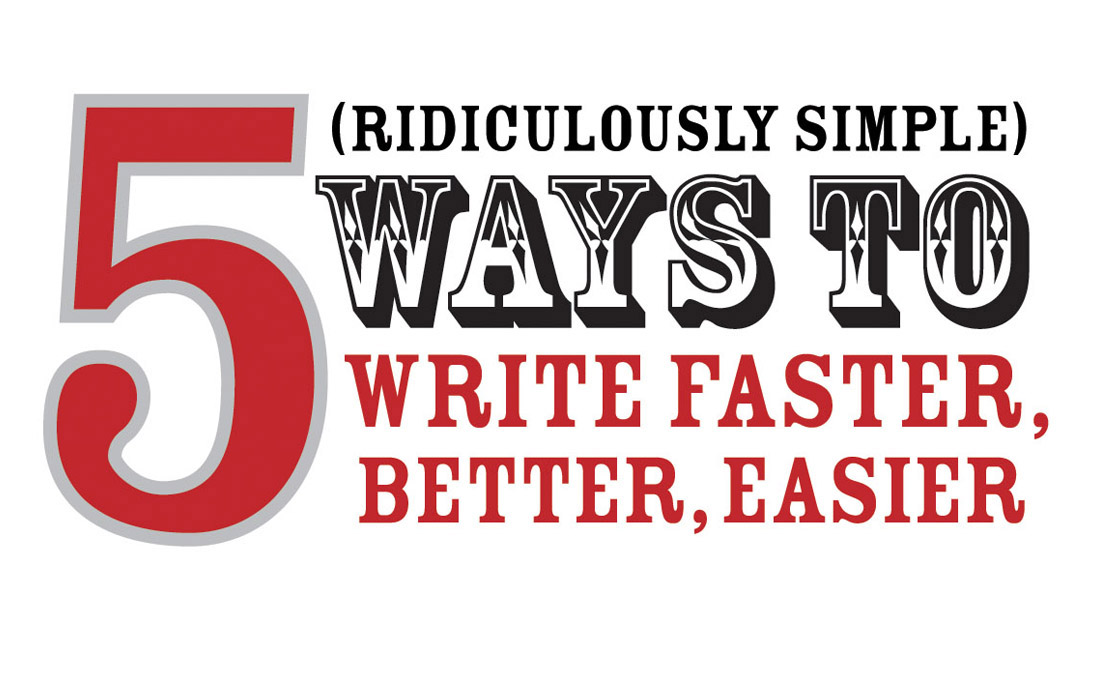7 More Books To Help You and Your Organization Become Better Storytellers
 Tuesday, May 19, 2009 at 08:00AM
Tuesday, May 19, 2009 at 08:00AM 
“When facts become so widely available and instantly accessible, each one becomes less valuable. What begins to matter more is the ability to place these facts in context and to deliver them with emotional impact. And that is the essence of the aptitude of Story- context enriched by emotion.” Dan Pink, A Whole New Mind
If there’s one thing the social media “tsunami” has shown us it’s this: storytelling is far from dead.
Now that we can tell our stories to the world in an instant, it might be a good idea to learn some of the basics in crafting an interesting story.
So where do we begin learning to craft our personal stories and the stories about our organization?
This set of books is the second half of my favorite books on storytelling for personal and business use. Each one is unique and offers tremendous insights into the world of storytelling. If you missed the first set of books, you can find them here.
7 More Books to Help You and Your Organization Become Better Storytellers
1. Wake Me Up When the Data is Over: How Organizations Use Storytelling to Drive Results. Lori Silverman
Of all the 14 books listed, this one is the most comprehensive books on organizational storytelling. “Wake Me Up” gives the reader dozens of examples on how to discover, craft and increase the use of stories within an organization. The book is divided into three parts: how stories are being used, specific applications and finally, advice on integrating stories into specific business needs. It’s definitely worth reading several times as it’s packed with dozens of real-life examples covering just about every angle of storytelling.
2. A Little Less Conversation: Connecting with Customers in a Noisy World. Tom Asacker
3. Sandbox Wisdom: Revolutionize Your Brand with the Genius of Childhood. Tom Asacker
Confession time. I’m a huge fan of Tom’s books. While some may say these books don’t technically fall into the “storytelling” genre but more into the “marketing” arena, I’d quickly disagree. Tom magically weaves the concepts of brand loyalty, marketing, customer engagement and how we connect with people using the power of a simple story. Both books use fictional short stories that take us on a fun journey from “business as usual” to “business as it really should be.” Like magic, these fictional stories and conversations quietly weave new ways for us to think about how we might begin approaching our own business practices. Ah, the power of a great story.
4. The Story Factor: Inspiration, Influence, and Persuasion Through the Art of Storytelling. Annette Simmons
5. Whoever Tells The Best Story Wins: How to Use Your Own Stories to Communicate with Power and Impact. Annette Simmons
Not sure where to start in your story journey? Want to start using your own personal stories when networking with others? Think about starting out with Annette’s books. I really, really love the “The Story Factor.” It’s a perfect book for beginners to get their heads wrapped around the power and basic concepts of storytelling. Annette covers the six stories we need to learn to tell, what is a story, storytelling do’s and don’ts and several other important ideas behind telling stories.
6. Squirrel Inc.: A Fable of Leadership Through Storytelling. Stephen Denning
7. The Springboard: How Storytelling Ignites Action in Knowledge-Era Organizations. Stephen Denning
I think “Springboard” was the first book I ever bought on storytelling years ago. While Denning’s book is geared more for organizational storytelling, I enjoyed crafting my own springboard stories simply personal practice. “The Springboard” is another great place to start incorporating a single story into your personal or business life.
What, then, is a springboard story? Denning explains a springboard story this way:“…a tiny story- 29 words or 200 bytes- is less a vehicle for communication of large amounts of information and more a tiny fuse that ignites a new story in the listener’s minds, which establishes new connections and patterns in the listeners’ existing information, attitudes, and perceptions…the listeners generate a new story.” (pg. 82-83, The Springboard)
“Squirrel Inc.” offers quite a different take on the power of storytelling through a fable involving a cast of squirrels; yup, squirrels…and the story works like a charm! A must-read, for sure.
BONUS: Of course, don’t forget Seth Godin’s classic, All Marketers Are Liars: The Power of Telling Authentic Stories in a Low-Trust World.
Do you have your favorites? What books did I miss? I'd love to hear from you. Share your comments here.
--Tom
 7 More Books to Help You & Your Organization Become Better Storytellers
7 More Books to Help You & Your Organization Become Better Storytellers



Reader Comments